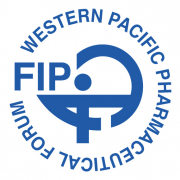Time to end ‘doctor diagnose, pharmacist dispense’ debate
 KUALA LUMPUR: The Malaysia Consumers Movement (MCM) is calling for holistic consultation with all stakeholders before a decision is made on the “doctor diagnose, pharmacist dispense” proposal which is being hotly debated in the social media.
KUALA LUMPUR: The Malaysia Consumers Movement (MCM) is calling for holistic consultation with all stakeholders before a decision is made on the “doctor diagnose, pharmacist dispense” proposal which is being hotly debated in the social media.
“The proposal will impact the people by putting individuals at risk for profits,” warns MCM President Darshan Singh Dhillon in adding to the debate.
Doctors would likely increase consultancy fees to make up for their losses, according to MCM, while pharmacists would have more options to maximise business growth. “The present state of uncertainties amid a volatile economy calls for the authorities to explore ideas so the rakyat (people) truly didahulukan (come first),” MCM said.
MCM recalled that the “doctor diagnose, pharmacist dispense” proposal was initially mooted by the government but received vehement objections from medical practitioners, consumer associations and the general public. “The plan which was once shelved has re-emerged in the mainstream media as well, as attempts are being made to reintroduce this proposal.”
“Speculation is rife that the proposal has been finalised, pending execution in April 2015.”
If true, why the intense level of secrecy and elimination of a public consultation period?
“It is worrying to note that objections raised previously would potentially be ignored.”
Is it right for the authorities to succumb to industry pressure at the rakyat’s expense, by ignoring the voices of protest?
At the moment doctors in Malaysia are entrusted to diagnose and prescribe medicines, while pharmacists only dispense drugs as instructed by the former.
“Seemingly, this adequate and time tested system is being subject to scrutiny whereby interested parties are recommending changes which MCM believes would put individuals at a disadvantage,” said Darshan.
The looming question is whether dispensing separation is part of a larger scheme which would be disclosed post April 2015?
The MCM believes that the “doctor diagnose, pharmacist dispense” proposal, if implemented, would have significant repercussions:
For starters, the cost of medical consultation will increase. Under the current system, doctors offset consultation cost by generating profits from the sale of medication. “Soon, medical practitioners would be lobbying to increase consultation fees if these functions are separated,” said Darshan. “Subsequently, consumers will be left at a lurch to pay twice, one for consultation and another for medicine.”
“The incidental price of travelling to a pharmacy would in itself be an additional cost element, not to forget the time required.”
Secondly, pharmacists may step out of line by diagnosing illnesses and the cost of inaccurate prognosis may lead to greater health complexities. The risk is real as the authority of dispensing medication would reside solely in the hands of pharmacists.
Is this a disaster in the making as big pharmacies start to monopolise and proliferate to the detriment of consumers?
Thirdly, it imposes inconvenience for consumers as the current practice provides a one stop mechanism for patients. If the new proposal is adopted, consumers will require increased resources, from time to money and logistics, merely for heading over to a pharmacy which may be a distance away.
How would it be convenient for the underprivileged or senior citizens?
The new system has little good to offer, especially to consumers.
Fourthly, patients may opt for cheaper medication or given the haste, ignore the purchase of medication to reduce cost or in the name of convenience at the expense of one’s health. In some cases, patients may even self-prescribe medication. Collectively, this puts the life of a patient at risk.
Is it viable to take on such risk?
The proposal also allows some individuals to manipulate the system by making it easy to obtain prohibited drugs such as sleeping pills. The pharmacists may not necessarily be held liable as the new system does not necessitate the need for a prescription by doctors prior to the purchase of controlled medication.
Would the new system become a tool for some to harm their own lives?
“Let us not be overzealous in our quest for attaining a high income nation status to the extent of neglecting consumer welfare,” said Darshan.
In this case, he stressed, it was the MCM Agenda to ensure that consumer welfare got top priority. “The act of discussing or allowing dialogue on this proposal makes it appear that the authorities are compromising on their responsibility in upholding the nation’s well-being.”
Needless to say, said Darshan, the new system has little good to offer, especially to consumers.
